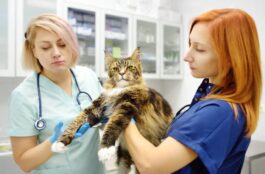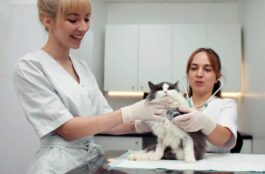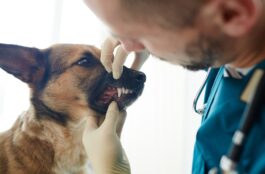
Trying to figure out if your pet needs to see a specialist can sometimes be tricky. I mean, they’re a part of the family, and we want the best for them. Regular vets are awesome, but there are moments when our furry friends might need a bit more specialized care. Let’s look into the details and get a clear picture of when it’s time to make that specialist appointment.
1. Persistent Symptoms
One tell-tale sign your pet might need a specialist is if they have symptoms that won’t go away. It could be anything from:
-
Constant coughing
-
Unexplained weight loss
-
Persistent vomiting or diarrhea
-
Continuous itching or licking
If your regular vet has tried the usual treatments and those pesky symptoms still stick around, it might be time to see someone specialized in that area.
2. Unusual Behavioral Changes
Our pets can’t tell us directly when something’s off, but their behavior can speak volumes. Have you noticed that your once energetic dog is suddenly lethargic or your cat is showing aggression out of nowhere? Such drastic changes might indicate an underlying issue that needs expert attention.
3. Suggestions From Your Vet
Sometimes, your vet will be the one to suggest seeing a specialist. This could happen if they:
-
Encounter a complex case they’re not equipped to handle
-
Notice symptoms that suggest a specific type of illness
-
Want a second opinion to ensure the correct treatment plan
It’s always a good idea to trust their expertise. They’ll advocate for what’s best for your pet.
4. Post-Surgery Complications
Did your pet recently undergo surgery, and isn’t it healing as expected? Post-surgery complications can range from infections to unexpected pain. Veterinarians skilled in post-operative care or a veterinary dentist, if dental work was involved, can help ensure your pet gets back on their paws faster.
5. Specialized Treatments and Diagnostics
Sometimes, the usual diagnostic tools and treatments just won’t cut it. For example, some diseases and conditions require:
-
Advanced imaging (like MRIs or CT scans)
-
Specialized lab tests
-
Unique treatments such as radiation or chemo for cancers
In these cases, a specialist who can read these tests and understands the specific conditions thoroughly is crucial.
6. Chronic Pain or Mobility Issues
If your pet struggles with mobility, they might benefit from seeing a specialist. Chronic pain, arthritis, or even hip dysplasia are conditions often better managed by specialists who are trained to provide:
-
Physical therapy exercises
-
Pain management plans
-
Surgical options, if required
7. Concerns with Eating or Drinking
Noticing that your pet is either devouring food excessively or barely touching it? Changes in appetite or hydration levels could be signs of deeper health issues. This especially applies if there’s weight loss or gain involved.
Consider the Specialists
-
Gastroenterologists: For consistent digestive issues.
-
Endocrinologists: If you suspect problems with glands or hormones.
8. Reproductive Issues
Breeding pets or dealing with reproductive health concerns can sometimes go beyond what a regular vet handles. If you’re facing challenges like difficulty in breeding, irregular cycles, or suspected issues like tumors, a reproductive specialist is the go-to.
9. Issues Related to Teeth and Gums
Oral health is essential for pets. If you notice signs like bad breath, bleeding gums, or broken teeth, it may be more than just a dental cleaning. Consulting a veterinary dentist can provide targeted treatments, from extractions to advanced dental procedures.
10. Skin Problems
Repeated skin infections, constant itching, or unusual hair loss might need a dermatologist’s eye. Vets specializing in skin diseases can pinpoint allergies, infections, or other dermatological issues far better than general practitioners.
11. When It’s More Than Just A Minor Issue
Some conditions are specific and require specialized knowledge that your general vet may not possess. Let’s talk about a specialized field: veterinary internal medicine. When pets display complicated internal issues like chronic gastrointestinal problems, respiratory diseases, or persistent infections, an internist’s expertise becomes invaluable. To learn more about finding a reputable internal medicine vet, click here.
12. Vaccination Plans and Optimizations
Vaccinations are a cornerstone of preventive care, ensuring your pet leads a healthy and happy life free from common diseases. Generally, pets handle vaccinations well, but there can be instances where a more tailored approach is needed, such as with dog vaccinations.
Generally, pets handle vaccinations well, but there can be instances where a more tailored approach is needed, such as:
-
Customizing a vaccination schedule for pets with specific health conditions
-
Addressing concerns from previous mild reactions to vaccines
How to Find the Right Specialist
How do you find a specialist for your pet? Here are some tips to get started:
-
Ask For Referrals: Your general vet can often recommend specialists they trust.
-
Check Credentials: Look for board-certified specialists.
-
Read Reviews: Other pet owners’ experiences can guide your decision.
-
Visit the Clinic: Ensure it’s well-equipped and meets your standards.
The Bottom Line
Knowing when your pet needs a specialist can significantly improve its quality of life and ensure it gets the care it truly needs. Remember, persistent symptoms, unusual behaviors, and direct recommendations from your general vet are clear indicators that it’s time for a specialist’s touch. Whether it’s issues with chronic pain, skin problems, or post-surgical complications, specialized care can make all the difference for your furry family member.


